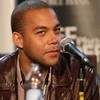Woody Allen at the 69th Cannes Film Festival on Wednesday, May 11, 2016. Photo by Valery Hache/AFP/Getty Images
For the next 12 days, the center of the cinematic universe shifts to the sunny resort town of Cannes, France, just as it has nearly every May since the Great War. There, the most famous filmmakers and daring motion picture artists will unveil what attendees and organizers, professionals and enthusiasts, all hope will be the newest addition to whatever canon the cinema has been able to cobble together during its century of existence.The 50 or so films in the various competitive sections of the Cannes Film Festival's official selection—Main Competition, Un Certain Regard, Short Films—and its sidebars—Director's Fortnight and Semaine de la Critiques—are just the tip of the iceberg. A massive industrial infrastructure grinds underneath the glitz of red-carpet premieres and all-night yacht parties, and another 4,000 films from all over the world are on sale in the festival's massive marketplace, the marché du film, while an expected 40,000 accredited guests roam the festival buying and selling, hustling and striving—not unlike the character at the center of Woody Allen's latest film, Café Society, which premiered Wednesday at the festival's opening ceremony.The opening was accompanied by the return of the sexual abuse allegations against the director, thanks to a damning op-ed by Allen's son, Ronan Farrow, published by the Hollywood Reporter that morning. And the claims seem unlikely to go away any time soon, making it hard to focus on the aesthetic and moral significance of Allen's newest motion picture, which has screened four times over the past 36 hours in these glamorous, darkened salles of the Palais du CinemaIt.Opinions about the film are mixed, but there is something else in the air. That's understandable, given the gravity of the abuse claims made by Allen's daughter Dylan. As Ronan Farrow astutely points out, those claims have been largely glossed over by reporters and news outlets that remain vulnerable to PR machines determined to wash away the sins of powerful men. Allen might be the only auteur to open the Cannes Film Festival three times, but he's also a man who has been accused of sneaking into his young daughter's bed "in the middle of the night" and "forcing her to suck his thumb," according to his son's op-ed.At a press lunch in Cannes, the 80-year-old director refused to comment on "that silly situation," saying that he has "so moved on that I never think about it," and prefers to focus on his work, which has been a staple of the prestigious French festival.Allen's previous festival openers, the unlikely box-office behemoth Midnight in Paris and the flaccid, Cannes-set A Hollywood Ending, weren't the strongest premieres, but his newest effort finds him in his best Cannes form since 2005's Match Point debuted at the fest.Unabashedly novelistic, Café Society tells the story of a young Jewish man's professional successes and romantic disappointments in both Los Angeles and New York during the years just before World War II. Allen's career-long concerns—the existential and romantic quandaries of Jews in a Goyish world and the plucky travails of strivers who learn to be careful what they wish for—find an elegant recapitulation in the director's first digital feature, with Jesse Eisenberg perfectly rendering the neurotic, self-effacing cadences of Allen's trademark style of speech in the film's lead role."I'm happy for the actors to use their own words, happy for actors to change sentences and make them their own," Allen remarked before Wednesday evening's premiere. He suggested the degree to which the actors find themselves at the mercy of his very specific writing has loosened as he's grown older.Narrated by Allen himself in the third person, the movie centers on Bobby Dorfman (Eisenberg), the son of a struggling Bronx jeweler, who moves west to work for Phil Stern, his movie agent uncle (Steve Carrell). While moving from doing odd jobs at the agency to a studio script reader, Dorfman falls under the spell of a redheaded Nebraskan shiksa named Vonnie (Kirsten Stewart), with whom Stern has been having an affair.After Vonnie chooses his older, well-heeled uncle over him, Bobby moves back east, where he finds success running a nightclub for his brother Ben (Corey Stoll). He marries an Oklahoma blonde (Blake Lively), has a child, and takes over ownership of the club after Ben, an unrepentantly violent gangster, is put in the electric chair at Sing Sing for pouring concrete over one too many undesirable men.As cloistered in a nostalgic past as his other recent, less successful works, Café Society is carefully lensed by the legendary Italian cinematographer Vittorio Storaro. The film is Allen's first to be shot digitally, but it has lost none of the beauty found in his recent clunkers Magic in the Moonlight and Irrational Man. Eisenberg isn't much of a leading man, but he's rarely found a more appropriate role and, as evidenced in films like The Squid and the Whale and The End of the Tour, he can be surprisingly effective when surrounded by able supporting players.Not so much a Hollywood satire as a remembrance of a particularly Jewish bi-coastiality of the 1930s, the film offers a portrait of a family Allen has hinted at in other productions, but has rarely delivered with such panoramic aplomb. From communist academics and charming mobsters, to brash movie execs and working-class stiffs, the film oscillates wildly between comedy and melodrama, Borscht Belt humor, and gentle sentimentality.As Allen continues to tread familiar waters in his late work, one wonders if he'll ever have the courage to tackle head on, in film, the mess he's made of his family's all-too public life.Follow Brandon Harris on Twitter.
Advertisement
Advertisement
Advertisement
